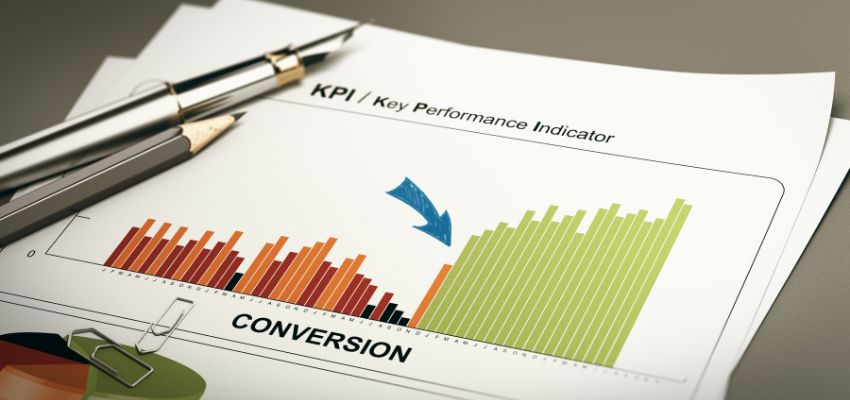Every marketing pro knows the pain of trying to justify those marketing costs. A boardroom meeting shouldn’t feel like a charity drive.
Luckily, there’s a hidden gem we wish was more well-known that can help you craft a data-driven strategy to boost growth and spot great opportunities for upping your return on investment (ROI).
In this article, I’ll guide you through the essential elements that every digital marketing audit needs to cover.
Key Points
- A digital marketing audit is a comprehensive evaluation of a business’s online marketing efforts, analyzing performance across various channels to identify strengths, weaknesses, and opportunities.
- The audit assesses key areas like website performance, social media, SEO, and paid ad campaigns to improve user experience, boost engagement, and increase ROI.
- Regular audits provide actionable insights into audience behavior, content effectiveness, and technical performance, helping businesses stay competitive in the digital landscape.
- The process concludes with a tailored strategy and plan to optimize digital efforts, align with business goals, and drive measurable growth.
What is a Digital Marketing Audit?
A digital marketing audit is a thorough check-up of your company’s online marketing efforts. It’s a deep dive into both the numbers and the stories behind them to see how well your marketing strategies are doing.
This process includes a thorough marketing audit, covering both SEO and social media, to pinpoint growth opportunities and areas that could use some improvement.
This audit takes a close look at everything from website and SEO performance—both on-page and off-page—to how well social media, email marketing, and paid ad campaigns are doing.

It looks at how these elements team up to reach your audience, zeroing in on key performance indicators and search engine rankings. The audit measures your work against industry standards, helping you keep your edge in the competition.
Also, a digital marketing audit should take a good look at your content marketing strategy, checking out how your social media efforts and content are performing on Google Search and other search engines.
It also checks out the technical SEO stuff, how user-friendly your web pages are on mobile, and how well your marketing campaigns are performing across various digital channels.
A digital marketing audit should wrap up with a comprehensive marketing plan, featuring a digital strategy that fits snugly within your budget and goals.
This plan lays out a straightforward way to boost audience engagement, ramp up lead generation, and fine-tune conversion rates, all with the goal of increasing sales and attracting quality subscribers.
By doing this, your business stays in sync with the latest trends, leverages tools like Google Analytics for precise data, and lays out a clear plan for future content creation and all-around digital marketing strategies.
Benefits Of Conducting A Digital Audit
A digital strategy audit is a game-changer in today’s cutthroat online world. Check out these key perks for your brand:
#1. Identifying strengths and weaknesses.

A digital audit gives you the lowdown on how well your digital marketing strategy is performing. It gives a thorough look at every digital touchpoint out there. It spots the highlights and the spots that could use a little TLC. Boost your game and nail your digital goals!
#2. Improve user experience
Improving your site’s design, functionality, and content makes for a way better user experience. Keeping visitors around and ramping up those conversion rates is key!
#3. Boosting your SEO game
Running an audit reveals just how well your site is tuned for search engines. Auditing boosts your search engine rankings, ramps up organic traffic, and shines a spotlight on your online presence.
#4. Assessing social media performance
An audit gives you a great advantage by clarifying your social media presence and engagement levels. The data lets you tweak your social media strategy just right. This will boost engagement levels.
#5. Understanding your audience
Looking at behavior and demographics gives us a peek into what people like, want and how they interact online. Getting this insight helps you connect with them better.
#6. Boosting your content game
An audit can reveal what really clicks with your audience. Doing this helps you craft messaging that’s sharper and more powerful.
When to Conduct a Digital Audit

There’s no universal answer, but there are definitely times when diving into the details of a digital audit is a must. This method gives you a clear signal for when to check your online presence and ensure it’s looking sharp. Alright, let’s dive into four of these cases and break them down:
- Before rolling out a new product. The audit can shed light on smart marketing strategies and recommend the best channels, along with tips for nailing your promotions.
- Before teaming up with a new business. As the new owner, it’s important to get a handle on the current marketing activities so you can leverage the business’s strengths and tackle any weaknesses.
- When the business is having a rough patch. If your website isn’t pulling its weight even with all that marketing hustle, it’s time for a little audit action. Spot the weak spots, find the fixes, and make the tweaks to boost its performance.
- Once a year or every few months. Regular audits and steady reporting give you the lowdown on how your campaigns are performing, helping you manage your budget and sharpen your strategy. Spotting those “blind spots” lets you focus on the tweaks that really make a difference.
What are the Three Components of a Digital Audit?
When it comes to digital audit, it takes a close look at your brand’s online presence, breaking it down into three key parts that help you assess and enhance your digital strategy. Check out this straightforward guide to these components:
#1. Web Audit
Your website is your business’s digital face, so it must perform well, look well, and provide results. Website audits evaluate performance, SEO, and user experience. Think about it. Does your website load quickly, mobile-friendly, and intuitively? Its search engine rankings? This component detects slow loading times, broken links, and bad content that may lose visitors. Your website should work as hard as you do to impress visitors and convert them into clients.
#2. Social Media Checkup
Social media isn’t only for sharing photos—it helps you engage with your audience. A social media audit evaluates your brand on Instagram, TikTok, and LinkedIn. Are your profiles complete and consistent? Does your content engage readers? This step examines rivals’ strategies to help you stand out. This allows you to stop “posting for the sake of posting” and start getting results by adjusting your captions or content strategy.
#3. Digital Ads and Analytics Audit

This is your ROI-checker for internet ads. Google Ads and Facebook advertisements are assessed for effectiveness. Are you getting clicks, conversions, and ROI? This section looks at ads and analytics to see where website traffic comes from and how users behave. Tracking and optimizing these insights keeps your digital efforts on track.
What is the Digital Audit Process?
Preparing for a digital audit can actually be a breeze! It’s setting the stage to ensure everything operates as smoothly as possible. Here’s the strategy to get your team ready for a successful audit.

#1. Get ready for the show
Start by clearly stating what you want to accomplish with your digital audit. Are you after a quick overview or a thorough dive that lays out a game plan for what’s next? Getting this expectation out there from the start sets the tone for everything that follows.
#2. Unearth the history
Gather up all your past marketing efforts and reports. This goldmine of information will show your auditors exactly what’s been working and what’s been falling flat.
#3. Team up with IT
Get your IT department in the loop right from the start. They’ll make sure the auditors can easily access all the digital corners they need to check out.
#4. Have a chat with the team
Getting everyone on the same page is key! Let your team know that a digital audit is all about spotting chances to dazzle even more, not about playing the blame game. It’s all about teamwork to amp up the company’s digital skills!
How to Structure a Digital Audit?
To pull off a Digital Audit, you need a clear plan to check out a brand’s online presence, performance, and strategies. Check out this easy-to-follow structure:
If you’re curious about auditing your digital visibility strategy to boost SEO and conversions, plus a few other things, here are some key steps:
#1. Check Out Business Goals

Getting a grip on your business goals is super important! Make sure they match up with your digital game plan. The alignment helps push your business ahead. It boosts your odds of thriving in the digital world. That’s a solid base for your brand to grow on!
#2. Take a Good Look at Your Online Presence
Give your website a good once-over. Consider the design, how it works, and what it’s like for users. Make sure to give your social media profiles a quick look! Think about things like branding, engagement, and your content game plan. Don’t forget to throw in other digital goodies, like email marketing campaigns or online ads!
#3. Take a Good Look at Your Content Strategy
When you’re reviewing your content strategy, make sure it’s relevant, engaging, and search engine friendly. Getting your content in sync with what your audience wants is the key to grabbing their attention. It also brings in organic traffic to your site.
Optimizing your content for search engines can boost your visibility and help you climb the rankings. That way, you’re more likely to pull in a bigger crowd! So, take a moment to check out these points. This will boost your effectiveness and help you hit your goals.
#4. A Look at Social Media and Email Marketing
Check out how your social media is doing by looking at the performance metrics. It usually covers how many followers you gain, how engaged they are, and how far your content travels. Don’t forget to see how well your email marketing campaigns are doing! Check out those open rates, click-through rates, and conversion rates to get the scoop!
#5. Evaluating SEO and SEM
Take a good look at your SEO and SEM strategies. Identify spots that could use a little TLC and boost your online presence! It boosts visibility, attracts the right crowd, and helps you hit your marketing goals.
#6. User Experience (UX) and Mapping the Customer Journey

Understand the user journey and evaluate the user experience. Take a closer look at how users interact, what challenges they face, and the key moments that matter. Doing this will reveal great insights to improve and elevate user experiences. In the end, it creates a smooth digital experience for your audience.
#7. Evaluating Technology and Tools
Take a good look at how well your current digital tools and technologies are doing their job. Keep an eye on how they affect your workflow, productivity, and business operations. Check out what they’re good at and where they could use some improvement.
Identify spots that could use a little polish and chances for making things even better. Tackling this task helps you make smart choices. It boosts your digital setup. It leads to better results for your brand.
Conclusion
Now you’re all set with the steps to conduct an online marketing audit. Time for you to take the stage!
If you need a hand or have any questions about your business, we’re here and ready to help! Remember to reach out via the comment section and I will be right there to reply.
Related Article
- The Digital Marketing Channel Mix for Optimal Results
- Digital Marketing Targeting: Strategies for Audience Reach
- A Beginner’s Guide to EDM Marketing for Perfect Digital Strategy






